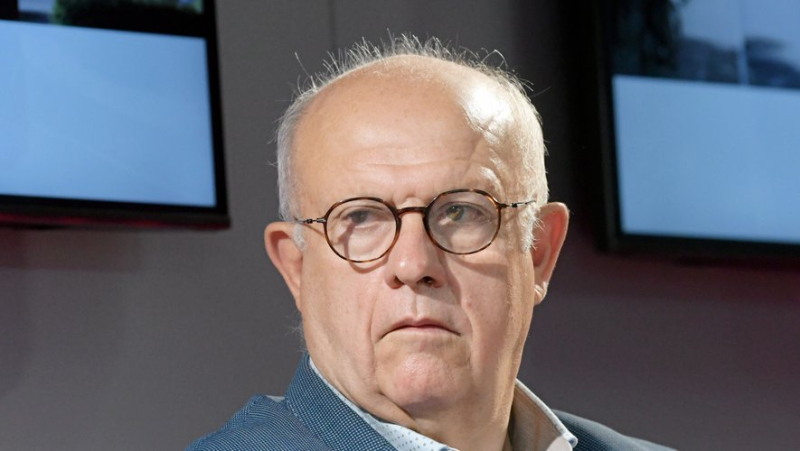“The car will continue to exist, rail will not do everything,” assures Gilles Savary

Pour Gilles Savary, il faut veiller au risque de séparatisme urbain entre villes et périphéries. Midi Libre – MICHAEL ESDOURRUBAILH
L’ex-député Gilles Savary, auteur du livre The inaccessible city – Essay on a yellow vest factory (ed. Le bord de l’eau – 2023) gives us his vision of the mobility of tomorrow.
What did you think of the debates that took place this morning at Midi Libre ?
I found them extremely rich. The formula was interesting with initially two external specialists of which I was a member, who do not necessarily master local problems, then regional speakers. This made it possible to have a debate with both a general and local vision. We can clearly see that the problems are more or less the same everywhere, whether around Montpellier, Bordeaux or other large metropolises, and that the risk of socio-territorial separatism exists due to the great inadequacy of peri-urban transport.
This risk of "urban separatism", what is it about ?
Since the 1990s, our regional capitals have experienced great dynamism. Montpellier, Bordeaux, Strasbourg have become large, hyper-attractive centers in terms of education, culture, employment and health. We can now achieve great careers there while enjoying a good quality of life. They are also very accessible thanks to the liberalization of air traffic and the TGV effect. On the other hand, housing has become so expensive that the middle classes have had to move away from the city center. Traffic jams have exploded because they continue to work there every day. At the same time, there is a tendency to close the city to cars to improve the quality of life of its inhabitants. So the small rural middle classes are seeing their transport expenses explode and their access to their jobs and essential urban services deteriorating. Hence this risk of separatism.
Urgently deploying sustainable mobility solutions to ensure the accessibility of our cities would therefore be "a republican imperative" according to you. Why ?
Because no territory of the Republic must be “forbidden” to citizens. If the restriction of automobiles in large cities is an irreversible trend, it cannot result in blind discrimination of peri-urban and rural populations in terms of access to jobs and services in our metropolises. No restrictive measure should be taken without prior assessment of its social impact, and without offering real alternatives to the affected populations. There is a risk that many people will be forced to give up their jobs in the city because transport is too long and too costly in relation to their salaries. Imagine the resentment this causes. We must pay attention to the feeling of relegation and injustice that some of our fellow citizens may experience. Whether they are carers, cleaners, caregivers, people from the outskirts also bring the city to life. They finance their share of urban transport networks from their salaries through mobility payments. The city needs them.
We can clearly see that the subject of sustainable mobility, which may seem daunting at first glance, is in reality at the crossroads of many issues…hellip;
Absolutely. Personally, I devoted myself very early to subjects related to transport, but at the time, it was a technical subject that was looked down upon and in which no one was interested. This hardly caused any interviews in the press! Only engineers spoke on the subject because the emphasis was on infrastructure. It is with the climate imperative and since the Yellow Vest crisis that the needs, expectations, and new uses in terms of mobility have entered the public debate in France. Furthermore, the digital revolution which allows everyone to create their own itinerary, to combine their different modes of transport according to their needs, has imposed a need to take into account demand and intermodality.< /p>
So why is France mainly relying on rail to decarbonize transport ?
Faced with climate change, we are witnessing Manichean pro-rail and anti-road postures. But the car is freedom. Decarbonized, it will continue to exist, rail will not do everything. The latter obviously remains a solution, but rigid and extremely expensive. We need a railway backbone but rethought in a global transport system with coaches, carpooling, cycling and active mobility organized around intermodal hubs. Reviving rail will take a long time. We need intermediate solutions that are more quickly accessible, such as buses with a high level of service.
How do you explain the low success of the coach in France ?
It’s a cultural problem. The French have always loved the car passionately, the train moderately and the coach only slightly. However, it is a flexible mode of transport which ensures a fine service to the territories and whose journeys easily adapt to the needs of the most isolated families. The success of school transport is proof of this: every day, thousands of children go to school by bus! There are also now coaches with a high level of service, including wifi so you can work.
France has set itself the ultra-ambitious objective of completely carbon-free mobility by 2050. Do you think that ;she will manage to reach it ?
I'm torn. I think that we will not switch overnight from the world of yesterday to that of tomorrow; I don't believe in shock therapy. I prefer a gradual, stubborn and realistic approach, to the mirage of radical and dogmatic approaches likely to provoke reactions of rejection as we have just experienced in agriculture. Let's be pragmatic: a coach that transports 50 people at a time is better than 40 solo vehicles, even if the coach in question is thermal! We must also ensure that people do not become discouraged. My deep conviction is that there will not be a successful ecological transition if we do not get all the French on board; there will be no decarbonization of transport if we do not offer people sustainable mobility solutions, compatible with their purchasing power and their quality of life.




